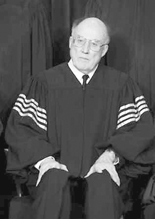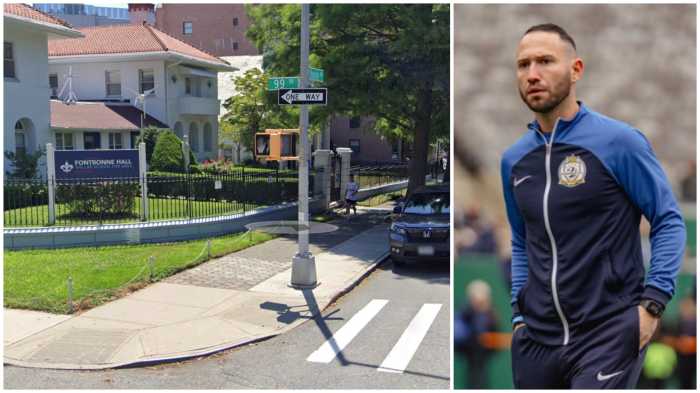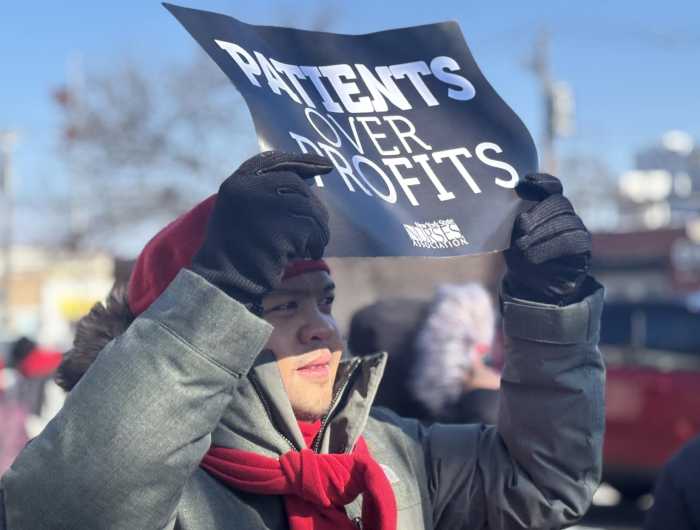In 33 years, late chief justice never ceded ground on the merits in court challenges
William Hubbs Rehnquist, chief justice of the United States, died late on September 3 at age 80 after serving 33 years on the Supreme Court. He was undoubtedly one of the most steadfast opponents of lesbian and gay rights during his lengthy tenure, and the author of two particularly demeaning and homophobic opinions.
From the time he was sworn in by President Richard Nixon early in 1972 until 14 years later when he was elevated by President Ronald Reagan to be chief justice, he was the most politically conservative member of the nation’s high court, frequently in dissent as more centrist or liberal justices continued to hold the majority through the 1970s.
For example, he was one of only two justices who dissented from the landmark ruling in Roe v. Wade in 1973, recognizing that a woman’s right to terminate her pregnancy during the first trimester could not be regulated by the state, an opinion supported by the other Nixon appointees. When he rose to the post of chief justice in 1986, Rehnquist lost the distinction of the court’s most conservative member upon the appointment of his successor as associate justice, Antonin Scalia, whose venomously homophobic dissents in Romer v. Evans, a 1996 case overturning an anti-gay Colorado voter initiative, and the 2003 Lawrence v. Texas sodomy case marked him as the court’s most strident opponent of the gay community.
Rehnquist participated as a member of the Court in the three most notable sodomy law decisions of recent history—Doe v. Commonwealth’s Attorney for City of Richmond Virginia (1976), Bowers v. Hardwick (1986), and Lawrence v. Texas (2003). In each of those cases, the last as a dissenter, Rehnquist voted to reject constitutional challenges to sodomy laws. He did not write, either for the Court or in dissent, in any of those cases, however, joining opinions written by others in Bowers and Lawrence.
Rehnquist cast a dissenting vote in Romer v. Evans (1996), the landmark Colorado case in which the Court first recognized an equal protection claim on behalf of lesbians and gay men, in which he joined the stinging dissenting opinion written by Scalia.
Rehnquist also dissented in Arline v. School Board of Nassau County, Florida (1987), and Bragdon v. Abbott (1998), the decisions that endorsed legal theories making it possible for people living with HIV/AIDS to find some protection against discrimination under federal civil rights laws, though such protections have been eroded in more recent cases.
Rehnquist wrote memorably and negatively about gay rights in two cases, Boy Scouts of America v. Dale (2000), in which he authored the opinion for a sharply divided 5-4 court, and Ratchford v. Gay Lib (1978), when he registered an unusual written dissent from the Court’s decision not to review a lower court ruling that ordered a state university to extend official recognition to a gay student organization.
The Gay Lib opinion is the more colorful and revealing, since a dissenting judge can express his feelings without having to compromise to hold together a court majority in support of their opinion. The trial court had ruled that the University of Missouri could refuse to recognize Gay Lib because a psychiatrist testified that an assembly of gay students would lead to acts of criminal sodomy. The Eighth Circuit Court of Appeals reversed, on a divided vote, finding the students’ right to assemble and advocate their views overcame the state’ speculative interest in preventing unlawful sex. Arguing that the Court should have taken the case, Rehnquist addressed the university’s justification for denying recognition.
“Expert psychological testimony below established the fact that the meeting together of individuals who consider themselves homosexual in an officially recognized university organization can have a distinctly different effect from the mere advocacy of repeal of the State’s sodomy statute,” the future chief justice wrote. “As the University has recognized, this danger may be particularly acute in the university setting where many students are still coping with the sexual problems which accompany late adolescence and early adulthood…
“From the point of view of the [gay student activists], the question is little different from whether university recognition of a college Democratic club in fairness also requires recognition of a college Republican club. From the point of view of the University, however, the question is more akin to whether those suffering from measles have a constitutional right, in violation of quarantine regulations, to associate together and with others who do not presently have measles, in order to urge repeal of a state law providing that measle sufferers be quarantined.”
In the Boy Scouts case, that organization was appealing a unanimous ruling by the New Jersey Supreme Court, which held that its discrimination against gay people as members or leaders violated the state’s sexual orientation nondiscrimination protections. Writing for the Court, Rehnquist found that the state’s interest in preventing discrimination had to give way to the rights of the Scouts as an “expressive association” to refrain from sending a pro-gay message, which he argued would necessarily be sent by allowing an openly gay man, James Dale, who was an advocate for gay rights, to serve as the assistant scoutmaster of a Boy Scout troop. Rehnquist wrote that the Scouts’ assertion that sending a message of disapproval of homosexuality was part of its expressive function could not be questioned, as the New Jersey Supreme Court had done.
“As we give deference to an association’s assertions regarding the nature of its expression, we must also give deference to an association’s view of what would impair its expression,” he wrote. “That is not to say that an expressive association can erect a shield against anti-discrimination laws simply by asserting that mere acceptance of a member from a particular group would impair its message. But here Dale, by his own admission, is one of a group of gay Scouts who have ‘become leaders in their community and are open and honest about their sexual orientation.’ Dale was the co-president of a gay and lesbian organization at college and remains a gay rights activist. Dale’s presence in the Boy Scouts would, at the very least, force the organization to send a message, both to the youth members and the world, that the Boy Scouts accepts homosexual conduct as a legitimate form of behavior.”
Rehnquist dismissed the argument, made by Justice John Paul Stevens in dissent, that changing social attitudes about homosexuality should affect the outcome of the case.
“
This is scarcely an argument for denying First Amendment protection to those who refuse to accept these views,” he wrote. “The First Amendment protects expression, be it of the popular variety or not. And the fact that an idea may be embraced and advocated by increasing numbers of people is all the more reason to protect the First Amendment rights of those who wish to voice a different view.”
Ironically, in support of his argument, Rehnquist cited a flag-burning case in which he had dissented from the Court’s ruling that those who burn the flag as a form of protest are protected by the First Amendment against prosecution.
In looking back over Rehnquist’s record in gay rights cases, the only positive glimmer comes from his decision for the Court in Webster v. Doe (1988), in which he ruled that a gay man who had been discharged by the CIA soon after he revealed he was gay could pursue a claim that his constitutional rights had been violated, even though the relevant statute seemingly gave the CIA director, in the interests of national security, total discretion over employment decisions. The ruling involved technical questions about which federal statutes governed in this case, and was not a finding on the merits of the gay agent’s claim. Subsequently, a federal trial judge ruled in favor of the employee, but was reversed by the U.S. Court of Appeals in a ruling denied review by the Supreme Court in 1993.
Thus, Rehnquist’s record remained consistent. He never ruled in favor of a gay rights litigant on the merits in a Supreme Court career that was among the longest on record.
His designated successor , subject to confirmation by the Senate, John Roberts, appears no less conservative, although his brief pro bono assistance to Jean Dubofsky when she was preparing to argue Romer v. Evans before the Supreme Court has given some hope that he does not share Rehnquist’s visceral opposition to gay rights.
gaycitynews.com




































